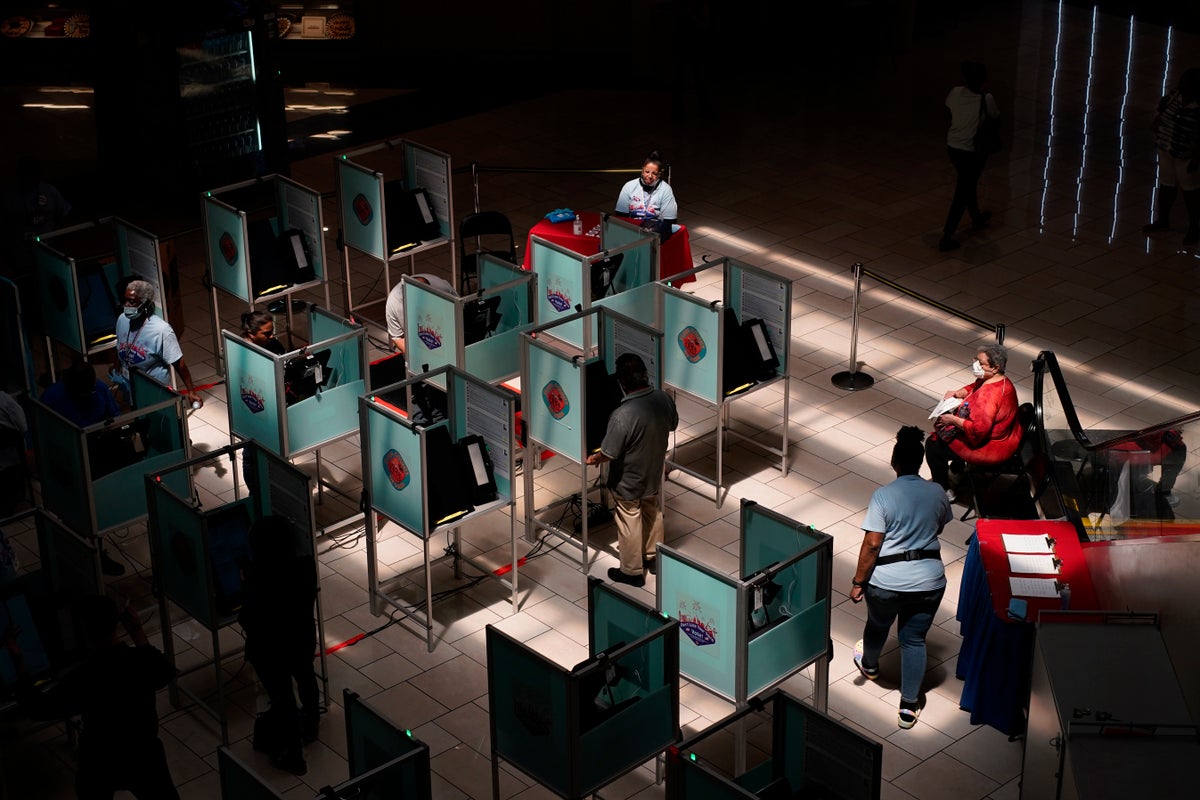
Nevada’s Democratic congressional members used a strong midterm showing as evidence for why the state should be the first Democratic primary stop in a joint statement on Friday urging the Democratic National Committee to put the state in the top slot.
It’s the latest in a growing debate over who should gain the priceless political clout of being first in the nation as Iowa’s half-century run stands on shaky ground. For months, the state's delegates have fended off criticism that it does not a diverse enough electorate and that it is not predictive of which candidate will win the primary.
The Nevada congressional members said the strong midterm showing — including Sen. Catherine Cortez Masto’s re-election after many deemed her the most vulnerable incumbent — “cemented why we should hold the first presidential primary.”
“Nevada is a working class, pro-labor state with one of the most diverse populations in the country and a commitment to voting rights that is a model for the nation,” the members added.
Four of Nevada’s five Democratic congressional members — Sen. Cortez Masto, Rep. Steven Horsford, Rep. Dina Titus and Rep. Susie Lee — all won re-election in what were considered toss-up races last week. Sen. Jacky Rosen is up for re-election in 2024. Rep. Mark Amodei is the state's only Republican congressional member and easily won re-election for his seventh term last week.
The Western swing state is mainly competing alongside New Hampshire, Iowa and South Carolina as the party opened up its process for the first spot earlier this year. The party’s rules committee is set to meet at the beginning of December to decide the new calendar.
New Hampshire has hinged its argument on the state’s grassroots politics and the potential for Democrats to lose future elections if New Hampshire ceases to be in one of top slots. The Iowa delegation promised changes to its caucus, including expanded vote-by-mail after technical glitches extended the 2020 results. South Carolina delegates have touted the state’s size, diversity, affordability and accessibility to candidates.
Nevada has a large share of working class voters with a strong union presence and large Latino, Filipino and Chinese American populations. The letter cited its Las Vegas and Reno metro centers, 28 Tribal communities and vast rural areas as evidence of a demographic that can be predictive of a primary win across the country.
“If you’re a presidential candidate and you can win in Nevada, you have a message that resonates across the country,” Sen. Cortez Masto said on MSNBC earlier this week, calling the state “a microcosm of the rest of the country.”
Friday’s statement is not the first post-midterm letter that points to the state’s diverse makeup and strong midterm showing as evidence for why it should go first. Nevada Democratic strategist Rebecca Lambe said in her own letter that the midterms “underscore Nevada’s record of beating the odds to deliver for Democrats.”
“The voters who make up our electorate represent the future of the Democratic Party if we want to win national elections: working class Latino, Black, Asian American, Native American, and white voters,” Lambe wrote in her memo, which was first reported by Politico. “Simply put, we cannot win 270 electoral votes or Congress without prioritizing the diverse, blue-collar coalition that Nevada represents.”







